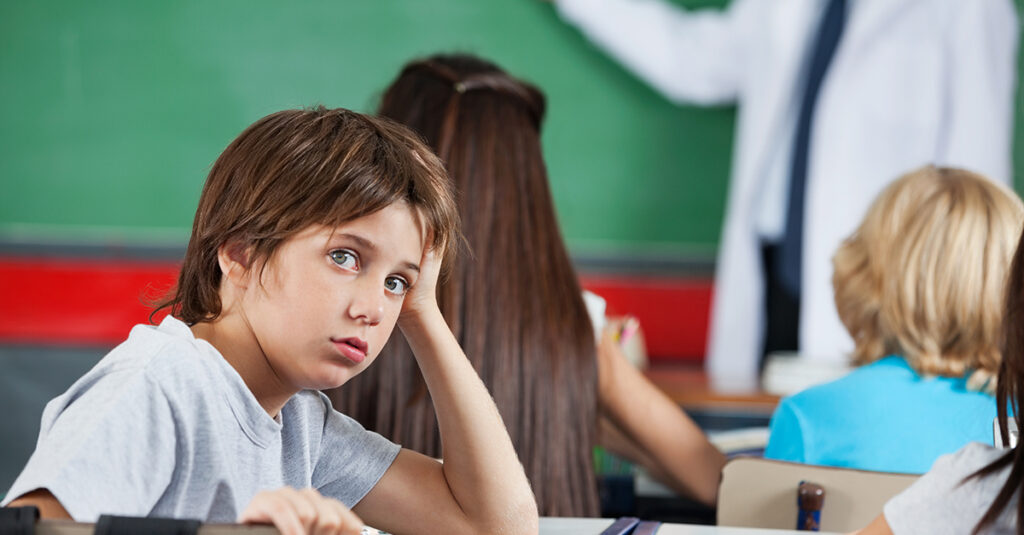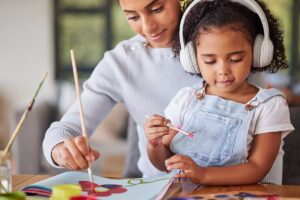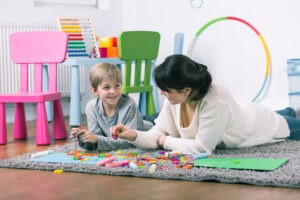Academic Impact
In fact, one national study showed a reduction of 16% of elementary school students who were performing at grade level in math and a reduction of up to 10% of students who were performing at grade level in reading.
Another study polled U.S. educators, who reported that as many as 30% of their students were 1 to 3 months behind in academic progress in February and March of 2021, compared to prior years.
Let’s talk more about how changes brought on by the Coronavirus specifically caused this so-called “pandemic learning loss”. And most importantly, what steps parents can take to combat academic loss and encourage learning recovery for children.
The Impact of Masks on Speech & Language Development
Speech-Language Pathologist Lainey Baron reports masks could have social and emotional impacts on children. For example, limiting a child’s ability to read others’ emotions.
“If a child is shy or has anxiety, the mask prevents them from speaking up and impacts their confidence,” she says. This could limit a student’s participation in class and during group activities with peers.
Lainey says that masks can negatively affect how effectively a child can communicate with others, saying “it also is hard to understand and hear a child talking.” This can impact a child’s ability to successfully engage in social and academic activities during the school day.
Young children who experienced the pandemic during infancy and toddlerhood may be entering preschool and Kindergarten with language delays, which may be tied to decreased academic performance.
According to research, attention to the mouth predicts later expressive language development. When others are wearing masks, children aren’t able to watch their mouths as they speak sounds and form words.
Teletherapy as a Solution
How can we support children’s social-emotional skills and their language development while adhering to mask recommendations to protect them from the Coronavirus?
Some experts caution that programs geared towards helping students catch up shouldn’t be solely academic-based. Playtime and socialization with peers is also required in order for children to effectively absorb new information.
Time at the playground or outdoor events where children may not be wearing masks can allow them to fully see others’ faces and better process their peers’ emotions. It can also be a safe space for kids to interact with others to improve their social skills.
If a child is experiencing speech and language delays, Speech Therapy can help improve those skills. Teletherapy is an effective alternative to in-person therapy that does not require the child or the Speech Therapist to wear a mask.
The Impact of School Shutdowns & Virtual Learning
During the course of the Pandemic, students have experienced their classrooms suddenly closing for days or even weeks. That’s left something educators have called “unfinished learning”.
A transition to virtual learning has also caused academic loss for some children. The reasons for that? Changes in schedules, learning environment, teachers, and technology-related difficulties are some of the contributing factors.
Traditional, in-person instruction hasn’t consistently been an option for all students. At the start of the 2020-21 school year, only 40% of K-12 students had access to in-person instruction, compared to 98% having access by the end of the year.
According to experts, during 2020-21, students simply weren’t provided with the opportunity to learn as much as they would during a typical year. Some students have even regressed and lost academic skills they previously had.
The Solution
Data from the U.S. Department of Education shows that almost 100% of students are now back to school full time and in person. Interventions in the classroom for those students who have experienced the most disruptions in learning due to the pandemic is crucial.
If parents have concerns with their children having experienced possible academic loss, it’s important to communicate those to their child’s teacher. According to research, in-person tutoring at school either one-on-one or within a small group, can help students catch up if their academic skills are behind.
The good news is that with most students having access to in-person learning again, they may have better academic outcomes, higher levels of student engagement, improved attendance, and increased social-emotional well-being.
Services to Mitigate Learning Loss from Covid
If you have concerns that your child has experienced academic loss during the pandemic, consider seeking an evaluation with a Speech-Language Pathologist. Speech therapy can help children who have difficulties with expressive and receptive language skills, disordered sound articulation, reading difficulties, trouble with executive functioning skills, and delayed social skills.
TherapyWorks offers Speech Therapy with Speech-Language Pathologists experienced in helping children improve language, speech, cognitive, and social skills to boost their overall academic performance.
TherapyWorks offers Speech Therapy, Occupational and Physical Therapy both in person and through teletherapy (nationwide). If you would like to learn more, or discuss your child’s specific needs, please don’t hesitate to reach out to TherapyWorks!








